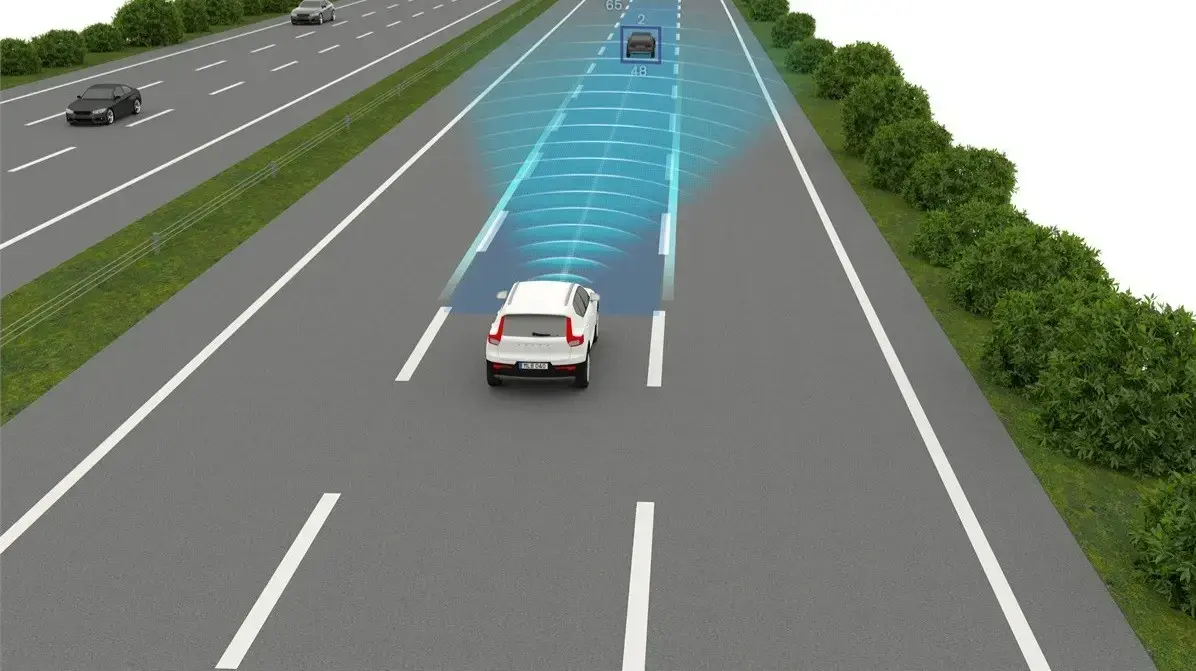Pilot Assist System, Volvo/Volvo Adaptive Cruise Control
The vision of the autonomous car, a wave of optimism that swept the automotive and autotech industry until about five years ago, brought the manufacturers, investors and just dreamers to invest billions in companies that promised that autonomous cars would drive here on their own.
Since then, everyone has folded their tails, moderated statements, reduced reference, licked wounds.
Yango's autonomous taxi will not be seen in the near future, neither will Mobileye's.
But even what could have been extracted from these replica investments - advanced safety systems with sensors, cameras and radars that could provide an additional line of defense against accidents with semi-autonomous capabilities - it seems that we were not really able to get. Anyone who already has adaptive cruise control in their car, for example, can To see again and again how many times it still misses, for example, cars that cut off our travel lane, forcing us to brake in panic ourselves and not wait for the computer's intervention.
Almost all systems failed with an attention reminder alert, with the test driver continuing to "text"/screenshot
In a test conducted by the American Insurance Companies' Safety Association (IIHS) for 14 driver assistance systems that guarantee semi-autonomous capabilities, in several hundred scenarios, the results were an almost complete failure.
11 were rated as "bad", two as "borderline" and only one as "acceptable".
"These results are alarming," concluded David Harkey, president of the IIHS, "especially considering the rate at which cars with these systems are hitting the roads."
In the inspection, the IIHS focused specifically on applications that are not at the core of safety, such as emergency braking or vehicle detection in a blind spot, but rather those that are defined between comfort and safety, that is, those that make it easier for the driver by reducing some aspects of the car's operation from him but are related to safety.
For example: lane deviation correction, adaptive cruise control, automatic lane change and more.
The systems tested were on several models manufactured by Nissan, Lexus, General Motors, Ford, Tesla, BMW, Genesis, Volvo and Mercedes.
More in Walla!
The breakthroughs, the treatments and what does the future hold?
Everything you need to know about diabetes
In collaboration with Sanofi
The "Queen of Safety" in 14th place/Nir ben Tovim, Rami Gilboa
Among the tests carried out on the systems, not only their performance in terms of fulfilling the safety tasks was tested, but also their ability to monitor the driver and warn of attempts to "cheat" the system.
The worst of the systems were those that could be operated even without wearing a seat belt or without certain identification of the driver (the testers covered the driver with a semi-transparent cloth to prevent identification), by detecting that the driver's attention was distracted (the experimenters held an object simulating a cell phone while driving), covered the camera lens and attach weights to the steering wheel to simulate its grip.
"Most systems do not include adequate measures to prevent abuse and prevent the drivers from losing concentration."
One of the claims directed against these systems and the fact that they are marketed without a clear reservation, is that over time, they create an illusion of security in drivers and a feeling that they provide a safety envelope that they cannot actually maintain.
A bright spot that the IIHS noted in the study was that, in general, although none of the systems registered success in all the categories tested, in each category at least one system was successful, that is, there is the technical ability to succeed and it is only a matter of updating the software and improving it by the manufacturers.
At Tesla both the beta version of the FSD and the autopilot failed/screenshot
As mentioned, the various inspection sections included driver monitoring, attention reminders, identification and taking measures in case a driver does not respond to warnings, driver involvement (the combination of the operation of the automatic systems with the driver, for example: the need for the driver's action to start driving after an automatic stop in traffic, signaling in order to to bypass a lane while using the cruise control and more), or preventing the systems from being activated if the driver is not wearing a seat belt.
The full ranking, which can also be seen on the official results page, gives a different weight to each of the test components, that is, not every success or failure "equals" the same in weighing the final result.
"Poor" score:
14th place: Volvo Pilot Assist
13th place: Tesla FSD (beta version)
12th place: Tesla Autopilot
11th place: Nissan Pro-Pilot 2.0
10th place: Mercedes Distronic
9th place: Lexus Dynamic Radar
8th place: Genesis Smart Cruise
7th place: Genesis Highway Driving Assist 2
6th place: Ford Adaptive Cruise Control
5th place: Ford Blue Cruise
4th place: BMW Active Driving Assistant Pro
"Borderline" score:
3rd place: Nissan Pro-Pilot with Navi-link
2nd place: General Motors Super Cruise
"acceptable" score
1st place: Lexus Teammate
More on the same topic:
safety systems
Car safety systems
safety
Tesla
Volvo
Lexus
BMW
Mercedes
Ford
General Motors
Nissan

